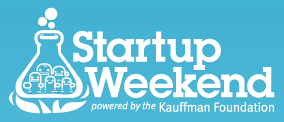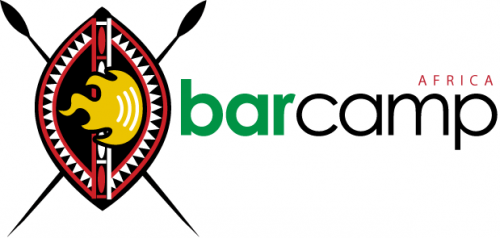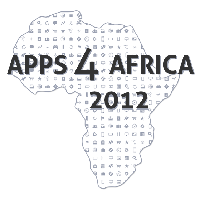Africa’s growing number of startup events and competitions
The number of African weekends devoted to creating startup companies and apps has grown tremendously since 2010. Official events for developers were few and far between only two years ago, but now are approaching the triple digits. The reasons? Better organized developer communities, better funding for tech startups, more interest by local entrepreneurs, and better mobile and Internet access.
Most events have been held in East Africa or South Africa, but West Africa (mainly Senegal and Ghana) has momentum. Often, a competition is the result of an international sponsor (ie. Nokia, Ericsson, or Google). Many more events (think Startup Weekend) are part of a global initiative.
Don’t forget, countless startups are guided by the excellent support of local mentors. Innovation hubs across the continent are a great example. Competitions certainly encourage and provide structure (and potential quick-funding) for an enterprise, but often its the daily grind that produces long term results. A goal for African startup events is to produce sustainable apps; many winning products lose steam and never see a public release.
A rough list of events for startups and developeers is below. It has been divided into two sections: weekend-only events and longer-term competitions.
Weekend Events
Startup Weekend:
Global network to create communities and build companies in a single weekend (54 hours). At least 12 Startup Weekends will occur in Sub-Saharan Africa during a 14-month stretch from September 2011 to November 2012.
m2work Hackathon:
Typically, an event when programmers meet to do collaborative computer programming. A variety of hackathons have taken place in Africa, including the recent infoDev-sponsored m2work legs in South Africa and Kenya.
GIST Startup Boot Camp:
Essentially, a bootcamp is tech recruit training. One such event was a Global Innovation through Science and Technology (GIST) Startup Boot Camp in Dakar, Senegal. The 2012 event welcomed over 100 young West African technology entrepreneurs from eight nations to receive training through panels and discussions, culminating in a series of pitches.
Startup World:
An initiative to promote startups, entrepreneurship and technology globally by sharing Silicon Valley culture with the world. SW events have been held in Rwanda, Kenya, South Africa, Tanzania, and Egypt.
G-Africa & G+ Hackathons:
Part of Google’s mission to make the Internet relevant and useful to Africans. The company routinely partners with the developer and tech communities to create, grow, and innovate ideas. “G|” events have been held this year in Tanzania, Ethiopia, Nigeria, Ghana, Senegal, Cote d’Ivoire, and Uganda. In 2012, Google ran a series of G+ hackathons in Nigeria, Uganda, and Ghana.
Garage48:
A weekend-long event where participants pitch 30-40 ideas. The favorite 12-15 ideas are then chosen for teams to work on with mentors. On Sunday night, teams live demo their projects and a jury chooses the winners. Ghana, Nigeria, Uganda, Kenya, South Africa experienced Garage48 in 2011. More countries are on the way for 2013.
Startup Pirates:
A one-week acceleration program for entrepreneurs. A combination of training, mentoring, and idea development helps participants develop ideas. In the end is an opportunity to pitch ideas to investors. The first SP event in Africa is to be held in South Africa in November 2012.
BarCamp:
An ad-hoc gathering born in 2005 from the desire for people to share and learn in an open environment. Think of it as an “un-conference” with discussions, demos, and interaction from participants. Over 60 BarCamps have been hosted in 20 African countries.
Other Competitions
Pivot East Mobile Application Competition:
Part of an initiative to bring focus on the mobile developer and entrepreneur community in East Africa. The competition had five categories with each having finalists pitching to a rich audience of investors, development partners, telecoms operators and other industry players from East Africa and across the globe. Sponsors include an array of East African mobile stakeholders.
Android Developer Challenge Sub-Saharan Africa:
Google event held in 19 cities across SSA. The Android platform relies on local developers. This competition is a way to award innovative Android developers with recognition and awards.
Apps for Africa – Eastern Africa:
An Android competition sponsored by Ericsson. Two categories exist: one for students and one for small businesses.
ForgetMeNot Africa Mobile App Competition:
Contests in Zimbabwe and Kenya allowed SMS-based mobile developers to compete for a chance to have their apps released to millions of mobile users.
Ignite Hackathon & Nokia Hack:
Brought over 80 developers to work through 48 hours to come up with apps to be included in the Nokia Ovi store. Both events were held in Kenya.
Apps4Africa:
Began in late 2009 as an annual program that aimed to support African social entrepreneurs using technology to solve societal problems. To date the competition has been able to offer funding to twelve participants from nine African countries. Is funded by the U.S. State Department with support from Appfrica.























 Twitter
Twitter Facebook
Facebook Pinterest
Pinterest
I am of the opinion that these “startup competitions” are detrimental to the startup culture that is beginning to flourish.
Three or two years later, the winners are yet to launch viable, self-reliant products. M-Farm, MedAfrica have had at least a year to go to market but have not done so. I think that the product of all these competitions is expert presenters/pitching.
A better idea would be to invite companies that already have viable and revenue-generating products to compete rather than individuals that have ideas.
You make a great point. We, too, agree that the lack of enduring commercial products is worrisome. Sponsors and stakeholders would be wise to re-evaluate the current competition model in light of this trend, especially in tech-savvy nations like Kenya.
Still, the current type of competition is still suitable for smaller nations where developers need the chance to flex their muscles.
I have participated in a couple of these events and the only bit that I think people don’t understand is that whereas most novice entrepreneurs may think that winning this event means a successful venture they all forget to understand that the consumers of their products are not really the Judges or participants @ the event rather these events are simply a great opportunity for one to Learn from like minded individuals and that’s it.
It’s a totally different ball game when it comes to dealing with market forces of demand and supply in order to push your products through and that is really where the real work is.
Just to add – the Gauteng Innovation Competition targets mobile app developers and is run in partnership with mLab South Africa. Winners share about USD$60,000 in seed funding and get incubation support http://gic.theinnovationhub.com/
Thanks – knew we missed a couple of big competitions like the GIC.